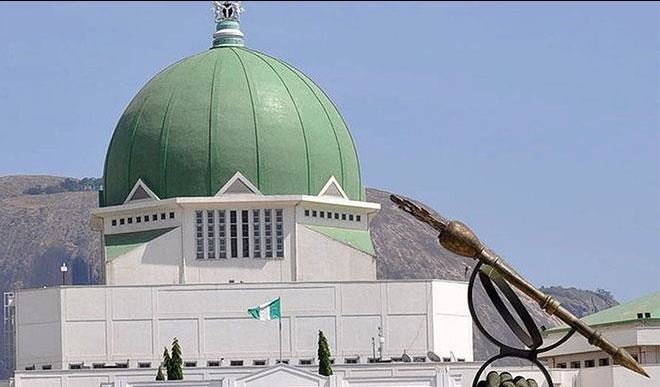When the news appointing the new Economic Advisory Council, EAC, filtered last week it caused a furore not only in the seat of power, the Presidential Villa, understandably, but across the national media. The team, which will be chaired by a prominent economist, Prof. Doyin Salami, will report directly to the President. Other members of the team include Dr Mohammed Sagagi, Prof Ode Ojowu, Dr Shehu Yahaya, Dr Iyabo Masha, Prof Chukwuma Soludo, Bismark Rewane and Dr Mohammed Adaya Salisu. It was not the qualification of the appointees that agitated the minds. They are all well known as eminent economists who, I suppose, would bring their rich expertise and experience to the Presidential table. What caused the furore was the fact that the EAC replaces the former team, the Economic Management Team, EMT, that the Vice-President chaired in their first term in office.
There was more to come. A day or so after, another directive came to light. In this latest missive the Vice-President was asked to seek approval from the President for those agencies domiciled in the Office of the Vice-President (OVP). These agencies include NEMA, NIPSS, BCDA, NDPHS and NCP. As I expected the stories unfolded under the banner of lurid headlines in the newspapers all hinting at some titanic struggle of power in the villa. One of the newspapers ran a screaming headline that the cabal in the villa is after the Vice-President.
To me the atmosphere surrounding the developments is a throwback to similar times sixteen years ago. Readers may recall that immediately after winning elections for a 2nd term of office in 2003 President Obasanjo unleashed similar changes in the State House. Those changes were of more import than what we are seeing now. Pre-2003, the units in the State House operated with a great deal of independence, actually a carryover from the military era when the office of Chief of General Staff was actually administering the country. In those dispensations, there was a distinct office of the President, the Vice-President, State House Clinic, Presidential Air Fleet (PAF) and National Security Adviser (NSA), with their staff and separate budgets. Among all these units the OVP was the biggest and enjoyed far more visibility, not just because of the size of its staff but also because of the functions the President devolved to it. Besides the agencies listed above, the OVP then handled liaison with States and Local Governments, Pilgrims Affairs and many crucial but understated functions. To underscore its importance, only the OVP was run by a Permanent Secretary. All the others, including the President’s office were headed by staff of Director’s level or below.
Then immediately after clinching a 2nd term, President Obasanjo decided, in one fell swoop, to merge all the units into one single entity. He appointed his Principal Secretary, Steve Oronsaye to take over as Permanent Secretary and oversee the merger. It was a difficult process full of misgivings perhaps due to the different perceptions given to the intentions of the merger. Something akin to concentric circles developed around President Obasanjo and Vice-President Atiku Abubakar, the two main actors in the fray. Gossips laced with political chicanery became the stock-in-trade among staff in the State House fully setting the two gladiators on a permanent war path.
However, since the President held all the aces in the game, the staff in the OVP became mere sitting ducks. And they were mercilessly decimated. The President appointed and sacked staff of OVP at will. Special Advisers, Senior Special Assistants, Special Assistants in the OVP were routinely sent home. The State House became embroiled in a game of musical chairs with the staff not knowing when and how they would lose the seats in their offices. For those of us who remained there throughout the period it was anguish to watch what was happening.
The President was unrelenting in that pursuit till by December 2006 there were no staff, that could be summarily sacked, standing in the OVP. And for all practical purposes the office became non-existent. Many believed that the President would have gone ahead to remove the Vice-President if not for the spirited efforts at the courts by Atiku Abubakar to remain till the very end. In any case that period of personality clashes in the villa had unimaginable consequences that affected the smooth operation of government for a long period.
A conflict with the President is an unequal fight. The constitution makes him the top dog in the pack with all the resources at his disposal. Though the constitution provides for the post of a Vice-President, it does not give clear cut functions to occupant of the post. Even the agencies, NIPSS and others, domiciled in the OVP are mere carry overs from the military era. They could all be assigned to ministries and the SGF office. The cruel fact is that the Vice-President is essentially a spare whose crucial use only becomes manifest in the absence of the President.
Adinoyi Ojo Onukaba, who died in 2017, had worked with both President Obasanjo and Vice-President Atiku Abubakar and had also written their biographies. Many of us defer to him as an authority on the personalities of the two eminent statesmen. In the book The Story of Atiku Abubakar, he explained how a Vice-President could manage to succeed in the light of the severe deprivations set out in the 1999 constitution. He wrote: “In the hands of an uncooperative, difficult and selfish President, the 1999 Constitution could make a Vice-President powerless, redundant and frustrated. But a cooperative, generous and selfless President could delegate some of his enormous powers and functions to a Vice-President thus ensuring that the deputy has a lot to do. The success of any Vice-President therefore depends to a large extent on the character of the President and how well the Vice-President manages his or her relationship with the President.”
I guess it is rather early in the day to start drawing conclusions on what is unfolding in the Villa. There had been no reports of any untoward happenings as far as the relationship between the President and the Vice-President went. In fact, one only admired the chemistry between the two in the manner they related in public throughout the first term. And obviously the Vice-President had won plaudits for the dexterous and unflappable manner he covered state duties whenever the principal was away – the first term the President was away for quite a number of times. Perhaps the reorganization is for the good of the system and the country at large. May be it is our imagination that is on a runaway mode. We pray that is so.

 Join Daily Trust WhatsApp Community For Quick Access To News and Happenings Around You.
Join Daily Trust WhatsApp Community For Quick Access To News and Happenings Around You.


